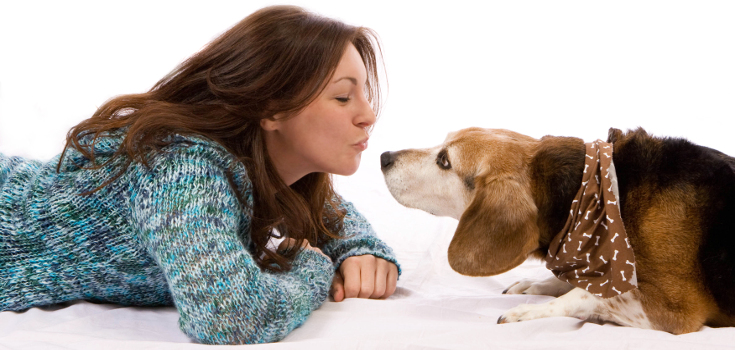Amazing Story: How a Rescue Dog Saved His Owner from Breast Cancer

Forty-six-year-old Josie Conlin has her dog to thank for her life. Her Border Collie was a rescue dog that had been kept in cages for very long periods of time. When she took him home, it took him over 10 months to recover from undesirable treatment by previous owners and shelters. He would later save Josie’s life.
Conlin suffers from chronic fatigue syndrome and benign breast disease, she was used to getting lumps in her breast that were nothing to really worry about. Her dog, Ted, was insistent upon a certain lump that developed which could have taken her life. He would cry and nuzzle her at on the same spot on her breast so much so that she decided to get it checked out.
Conlin states:
“I had heard that dogs could smell cancer so I said to my husband, Brian, should I go and get this checked out Ted started sniffing it and at that point I knew I needed to do something about it.”
Conlin will receive treatment for a lump that was found to be cancerous by her doctor. Her daughter Hannah said:
“If Ted had not found it we would not have known and it would have been different. He has saved the family.”
She also nursed both parents through cancer.
There is evidence that dogs can sniff out cancer even before it has reached catastrophic stages. In one study, dogs were able to sniff out prostate cancer with 98% accuracy.

While many ‘non-profit’ organizations urge for cancer screenings like mammography – the radiation from the machines used to conduct them can cause cancer. Not to mention the cost of mammography equipment is prohibitive. Here are just a few on the market now:
- GE Senographe 2000D- $115,00 to $135,000
- GE Senographe Essential– $155,000 to $180,000
- Hologic Selenia- $140,000 to $170,000
- Computer-aided detection (CAD)– $15,000 to $20,000
Other procedures for investigating cancer probabilities are also quite invasive and costly. With stories like Josie Conlin’s we might look to our canine friends to help diagnose this disease, and then take more holistic measures to treat it.

Very interesting. Thank you.
I find it very interesting that this article covers dogs, mammography and all sorts of detection for breast cancer yet overlooked the safest and best which is a thermography. Was this an oversight?
I’m saying same thing as Robin. Why no mention of a thermogram in this article????
My Labrador retriever alerted me to a melanoma on my arm in the same manner. There is no question that dogs can smell malignant cancers. I read an article several years ago that stated that research was being done to see if dogs could be trained to detect cancer in humans. The article claimed that the researchers were having a success rate at well over 80%. Haven’t heard anymore about since then.